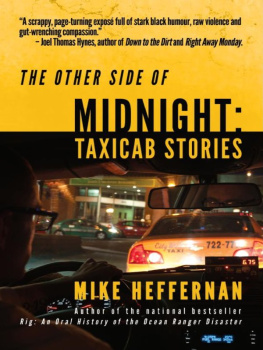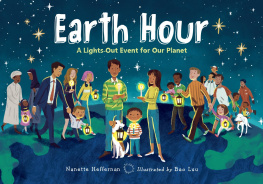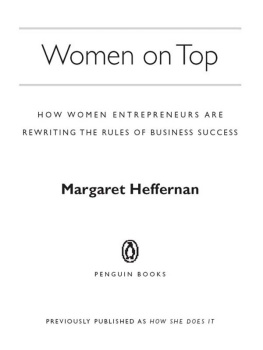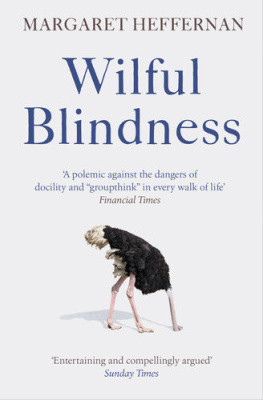Thank you for downloading this Simon & Schuster eBook.
Join our mailing list and get updates on new releases, deals, bonus content and other great books from Simon & Schuster.
C LICK H ERE T O S IGN U P
or visit us online to sign up at
eBookNews.SimonandSchuster.com
We hope you enjoyed reading this Simon & Schuster eBook.
Join our mailing list and get updates on new releases, deals, bonus content and other great books from Simon & Schuster.
C LICK H ERE T O S IGN U P
or visit us online to sign up at
eBookNews.SimonandSchuster.com

Simon & Schuster
1230 Avenue of the Americas
New York, NY 10020
www.SimonandSchuster.com
Copyright 2016 by Virginia Heffernan
All rights reserved, including the right to reproduce this book or portions thereof in any form whatsoever. For information, address Simon & Schuster Subsidiary Rights Department, 1230 Avenue of the Americas, New York, NY 10020.
First Simon & Schuster hardcover edition June 2016
SIMON & SCHUSTER and colophon are registered trademarks of Simon & Schuster, Inc.
For information about special discounts for bulk purchases, please contact Simon & Schuster Special Sales at 1-866-506-1949 or .
The Simon & Schuster Speakers Bureau can bring authors to your live event. For more information or to book an event, contact the Simon & Schuster Speakers Bureau at 1-866-248-3049 or visit our website at www.simonspeakers.com.
Interior design by Ruth Lee-Mui
Jacket design by Ren Julius Reyes
ISBN 978-1-4391-9170-5
ISBN 978-1-4391-9171-2 (ebook)
Parts of this book were published, in different forms, in the New York Times , Yahoo! News, and Wired .
For Ben and Susannah
PREFACE
On January 25, 2006, a mysterious image showed up on YouTube, the video-sharing site that was then only three months old. A sinewy figure in a swimming-pool-blue T-shirt, his eyes obscured by a beige baseball cap, was playing electric guitar. Sun poured through a window behind him. He played in a yellow haze. The video was called simply guitar . A handmade title card gave the performers name as Funtwo.
The piece Funtwo played with mounting dexterity was an exceedingly difficult rock arrangement of Pachelbels Canon, the composition from the turn of the eighteenth century known for solemn chord progressions and overexposure at weddings. But this arrangement, attributed on another title card to someone called JerryC, was anything but plodding: it required high-level mastery of a singularly demanding maneuver called sweep-picking.
Over and over the guitarists left hand articulated strings with barely perceptible movements, sounding and muting notes almost simultaneously, and playing complete arpeggios with a single stroke of his right hand. The video was thrilling to watch.
Almost instantly I was hooked. I hadnt yet seen selfies of any kind, handheld or selfie-stick-enabled, nor had I seen video on Skype or FaceTime, so I wasnt accustomed to this intensely focused exhibitionism, the pleasingly distorted self-portraits in moving pixels, often of family and intimate friends, that now flood our screens. Funtwos own selfie video was curious, masturbatory: David Hockney colors plus chiaroscuro. The effect was not wholesome. The video lacked the creamy resolution, crystalline audio, and voluptuous effects associated with professionalismand with even the average MTV entry.
Amateur. Homemade. Flawed. Not so much mesmerizing as provocative. Harold Bloom wrote that to behold is a tragic posture; to observe is an ethical one. Funtwo required near-clinical observation. You didnt behold this video, as you might a Hollywood movie, enraptured by the spectacle. You inclined toward it. You studied it, like a scientist. You peered, as at scrambled porn on a high and forbidden channel.
As soon as I leaned forward, I had reached for Tolkiens ring, or tasted some life-altering drug, or crossed a magical line, and there was no going back. Just as Nabokov forces us to take Humbert Humberts language into our very mouths in the opening of his great novel of child rapeLo-lee-ta: the tip of the tongue taking a trip of three steps down the palate to tap, at three, on the teeththis video seemed to implicate anyone who watched it.
I played guitar again, then again. A small miracle was quietly happening in those first months on the site. The bona fide pornography that was widely expected to drive out all other video genresas a predator plant strangles diverse flora and unbalances ecosystemsnever showed up. Without actual porn, the subtler voyeurism of guitar stood a chance of becoming a hit with viewers. And hit it was. By the end of its first week on YouTube the video had been viewed 1 million times. By 2016 its various versions had drawn more than 10 million views, and for years it was regularly listed among the most-seen snippets of online video in the history of the World Wide Web.
Working as a critic and columnist for the New York Times , I had acquired some unusual new habits since YouTube launched. Guitar only threw the problem into relief. As network television contracted, the media business folded dozens of magazines, and YouTube was acquired by Google for $1.65 billion, with other $1 billionplus tech acquisitions and giant IPOs in the offing, I found myself mystified by how much time I spent away from the tattered-armchair totems of my youth: books, magazines, newspapers, the broadcast networks, and the ever-present murmur of NPR.
While there was still achievement and pleasure in the old media, it was clear too that the dogs had barked; the great caravan that brings the knowledge and ideas that shore up human enterprises had moved on. I renewed my subscriptions to Vogue and the New York Review of Books , until I didnt anymore. Back issues had piled up on my coffee table and then become part of recycling, landfills, and compost. They werent culture; they were carbon. Part of the problem gumming up the environmental works.
The same thing happened to the novelsHilary Mantel, a reissue of John Updikethat I ordered in hard copy from Amazon. The spell that had been cast over me by inked letters on white pulp was broken. Or more accurately: a new spell had been cast, on a separate part of my brain.
The deeper I ventured into the civilization I found online, the more I realized Id need new models of courage and imagination to contend with the trippy, slanted, infinite dreamland of the rapidly evolving Web. Funtwo became my hero. The velocity, intricacy, and exactness of his performance modeled the rhythms and mental requirements of the Web itself.
Funtwos guitar video speaks to me now, a decade later, just as a chalice of certain dimensions tells us something about the people who inhabited a lost world. From a chalice we learn how big were the hands that were meant to hold it; how much liquid people liked at once and could consume; what kind of liquid, cold or hot, basic or acidic, they considered potable; what type of surface their cups might sit on. The dozens of hours that I spent feeding my obsession with guitar were not wasted. Or not entirely.
The video was, in factas Funtwo (n Jeong-Hyun Lim) told me when I finally met himintended to be instructional, an early contribution to the now encyclopedic how-to category on YouTube. (Which I would later consult to learn umbilical care for my infant daughter, as well as how to shield an iPad from scratches and how to make progress in a Wii game called Lego City Undercover.) For me the video contained a powerful suggestion of the kind of person I would have to become if I was to keep a clear head in the new medium that had come to dominate my mental life. And I was not alone: the Internet was pervading the lives of all of us who were growing into a newly transmogrified social and aesthetic space, from my neighbors and colleagues, friends and children, to musicians in Taiwan and Seoul and all of the 1.4 billion active users of Facebook.
Next page











